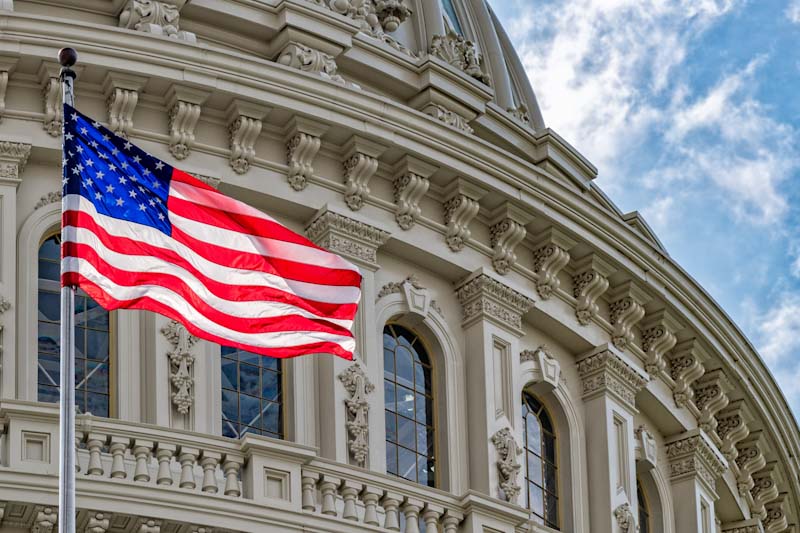This website uses cookies so that we can provide you with the best user experience possible. Cookie information is stored in your browser and performs functions such as recognising you when you return to our website and helping our team to understand which sections of the website you find most interesting and useful.
News
VI Bi-weekly Legislative Update – Tariffs Against Mexico Complicate USMCA
Proposed Tariffs Against Mexico Complicates Congressional Consideration of USMCA
The Trump Administration formally initiated the approval process for the U.S.-Mexico-Canada Agreement (USMCA) by sending the draft statement of administration action (SAA) to Congress on May 30. The White House may have put the deal in jeopardy when it announced new tariffs on Mexico the same day. Just as the news of the Administration’s progress broke, President Donald Trump tweeted that the U.S. will impose a 5-percent tariff on all goods from Mexico starting June 10. Trump says the tariffs will stay in place and gradually increase until illegal immigration from Mexico into the U.S. is “remedied.”
The current political environment and tariffs are likely to complicate congressional consideration of the USCMA. With only 28 legislative days until the August congressional recess, the trade pact has a very tight window of time in which it can pass and must have Democratic lawmakers support to be ratified. Up until now, House Speaker Nancy Pelosi has been confident that she could rally her caucus’s support for passage with the precondition that the Administration work through some Democratic concerns on labor, environment, enforcement, and drug pricing. Previous to this, the Administration had appeared it was willing to wait and negotiate some of these issues before sending the deal to Congress for a vote. Tensions have been high between the House Speaker and the President since the failed $2 trillion infrastructure deal. The sudden decision to start the clock for USCMA passage and slapping new tariffs on Mexico is “not a positive step” according to Speaker Pelosi and may push many on-the-fence Democrats to refuse to support the pact, causing the road to passage to continue to get narrower.
So far, responses from Mexican officials has been cool and measured. Mexican President Andrés Manuel López Obrador eased fears of a trade war emphasizing the friendship between the U.S. and Mexico. Mexican Foreign Minister Marcelo Ebrard told reporters that the tariffs could be costly for both the U.S. and Mexican government. Mexican counterparts are in Washington D.C. this week hoping to convince the Trump administration not to impose the new tariffs. U.S. Trade Representative Robert Lighthizer’s meetings with Mexican officials are part of a busy week; Lighthizer is also spending the next few days on Capitol Hill working toward getting the U.S.-Mexico-Canada Agreement passed.
Need for Resiliency Planning in Response to Threat Climate Change Poses on Transportation Infrastructure
In other news, the House Science, Space, and Technology Subcommittee on Investigation and Oversight held a hearing on May 21, on the need for resiliency planning in response to the threat that climate change poses to transportation infrastructure. The effects of flooding and water infrastructure were a key issue discussed. Panelists reviewed how weather and environmental challenges require a new way of thinking about how cities build and what are the best materials to use to enhance resiliency for preventive measures and rather than being just reactive to disaster situations. Scott Reeve, President of Composite Advantage, LLC, testified that weather and corrosion-proof composite materials could provide viable solutions and economical alternatives to rebuilding. All witnesses agreed that procurement cost analysis for infrastructure and acquisitions needs to start considering resiliency and lifecycle costs, as well as long term maintenance costs in those decisions. Furthermore, they agreed that education and having access to studies on new materials is imperative to cities making informed science-based decisions at the end user level for new construction and rehabilitation projects.


